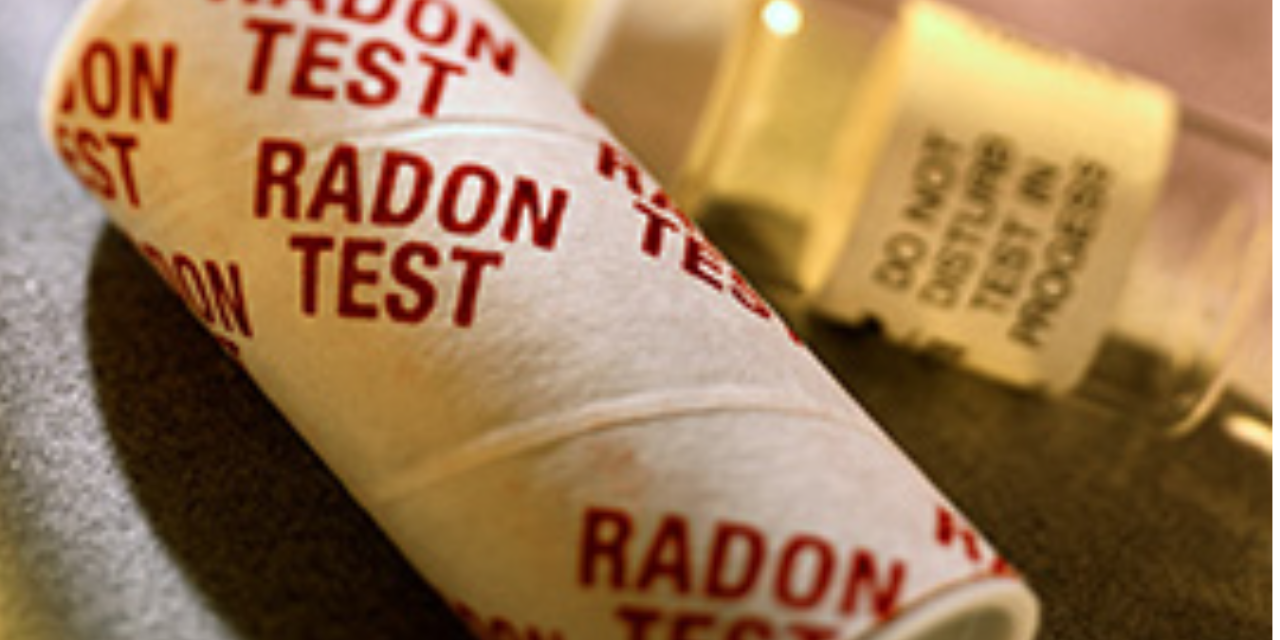January 2025 is the start of the new year, but it’s also ‘National Radon Action Month’ and, in observance of that month – and in order to raise awareness of the threat of radon in homes and buildings – the North Carolina Department of Health and Human Services is providing thousands of free radon test kits for state residents.
Those tests will become available on Tuesday, Jan. 1 and will be distributed while supplies last.
You can request yours at radon.ncdhhs.gov.
Many people don’t realize it, but radon is responsible for about 450 deaths in North Carolina each year – and radon exposure is the number one environmental cause of lung cancer in North Carolina.
Radon exposure is preventable; however, testing is the only way to know if you or your family is at increased risk. Many people who are adamant about having fire detectors and other safety devices in their homes overlook the threat of radon poisoning.
It’s particularly dangerous because radon is an odorless, colorless gas that’s released from the ground, usually into outdoor areas. However, it can accumulate in homes and other structures and reach harmful levels when trapped there.
NC Radon Program Coordinator Phillip Gibson said take the risk lightly at your own peril.
“Everyone in North Carolina, from the coast to the mountains, is exposed to some level of radon,” he said. “The question is not if you are exposed, but whether the level of exposure could be dangerous to your health. Testing for radon is the only way to know.”
To support increased radon testing and mitigation, the NC Department of Health and Human Services recently published a collection of data meant to help North Carolina residents understand the risks of radon in their communities.
Recent data shows that more than three-quarters of all North Carolina counties have elevated levels of radon. A level of “four picocuries per liter” or higher in a home is considered to be dangerous.
County-specific data and more recommendations are available on the NC Department of Health and Human Services radon webpage.
Statewide surveys also found that radon impacts different communities at differing rates. White people, for instance, are 30 percent more likely to know about radon than their “non-white peers.”
State health officials are currently working to increase community outreach – in 16 different languages – to the people less likely to be aware of about the problem.
For years, the North Carolina State Health Improvement Plan and the North Carolina Cancer Control Plan have included a goal of reducing radon exposure through testing and mitigation as a key strategy to improving life expectancy across the state.
In addition to providing free radon test kits and running a PR campaign during the month set aside for radon awareness, the department is working to show people ways they can protect themselves and their families from dangerous levels of radon.
Last year, the state hosted a free virtual presentation that highlighted research conducted by Duke University on the causes of high radon levels as well as the effect of the problem on historically marginalized populations.
According to statistics from the US Centers for Disease Control and Prevention, 73 of North Carolina’s 100 counties have indoor air levels of radon that exceed safe levels.
State health officials note that indoor radon is a preventable and fixable problem and the solution is similar in cost to other home improvements.
The NC Radon Program recommends hiring a certified radon mitigator to fix elevated radon levels.


You got any LEFTIST kits?
Well, I’m white, and I have no knowledge on this subject. Just like I’m sure there are black people, and brown people, who do have knowledge about it. I swear, people love to bring color into literally EVERYTHING… Couldn’t you just say it’s a topic that most people aren’t even aware of?
I’m with you Cyn, Radon comes from granite rock Guilford County is geographically located on mostly granite rock. I’m guessing White people only live in homes that are not on granite sites.
May I please get a kit?
Jus’ for you, darlin’.
How do we get the Kits?
radon.ncdhhs.gov
This is the most direct link. https://secure.airchek.com/cgi-bin/ncdhhs.cgi
If one goes to that site, at least for me, it is a circular link. Click on the link to request a kit and it takes you back to the same page you are on. Sigh…
Where’s the link to get the free kit.
Thank you
I recommend this highly. Both my husband and a former resident of one property where we lived for ten years both died from the same rare form of cancer. Probably a coincidence but why take any chances.
is this problem checked during ‘inspections’ when structures change hands ? if it is so prevalent, why not ?
Note: Here is the direct link to get the free tests. https://secure.airchek.com/cgi-bin/ncdhhs.cgi
while NC lasts ?